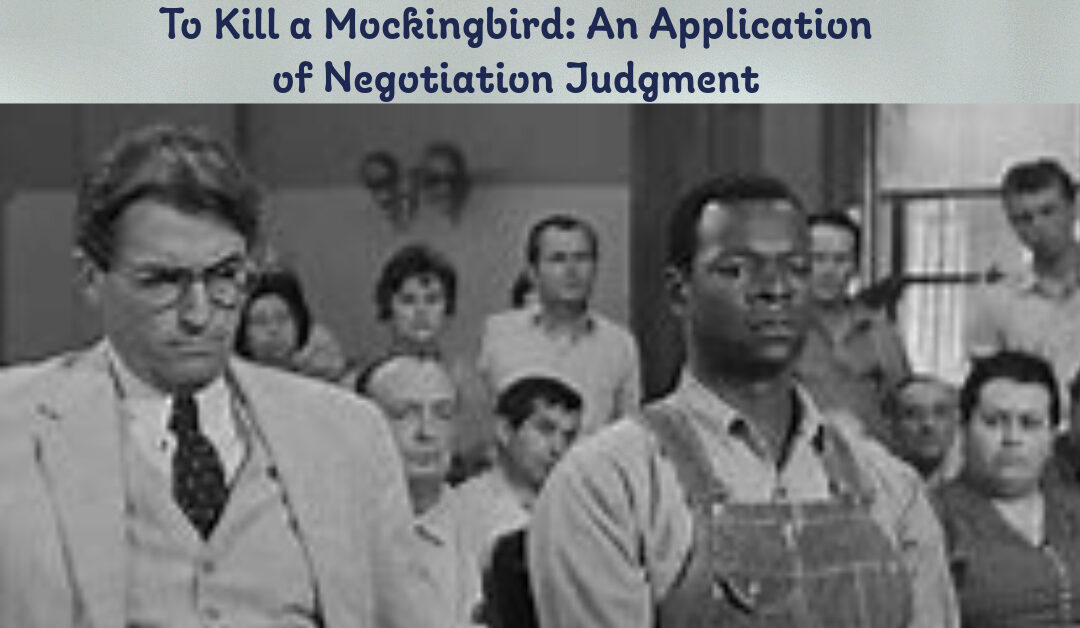Our kids tend to be rule-followers, which is perhaps not surprising as my wife and I tend to be more rule-breakers. Not big ones, but I do have a lead foot. I was reminded of this recently when I rewatched the classic movie To Kill a Mockingbird with Gregory Peck, based on the 1961 Pulitzer Prize-winning Harper Lee novel.
As I watched it, I couldn’t help thinking of how many lawyers of that Depression era might have negotiated differently in two powerful scenes:
1) when lawyer Atticus Finch, played by Peck, was asked by the judge to represent the African American man accused of raping a white woman; and
2) after Finch’s odd, reclusive neighbor Arthur “Boo” Radley saved his son’s life but in doing so may have killed his son’s attacker, and the sheriff asked Finch to turn a blind eye to the circumstances of the death and allow the intensely private Radley to avoid an all-but-certain trial and likely conviction that would have ruined his life.
How did Finch negotiate here, and what can we learn from them?
In the first scene, Finch reflected on his answer when asked to take on the case, which he knew would be hugely unpopular in the racist town and that could even put his family in danger. But he then agreed.
Why? In part because he strongly believed in a rule-based legal system that gives criminal defendants, no matter the allegations, circumstances, or their unpopularity, the right to be represented by a lawyer (per the 6th Amendment to the U.S. Constitution). This fundamental right was obviously more crucial to Finch than his and his family’s personal interests.
Excellent negotiators must weigh everyone’s interests in almost all negotiations. And at times, we must prioritize higher principles and interests over our personal self-interest, like Finch did here.
Ironically, in the second scene, Finch seems to throw his belief in the rule-based legal system under the bus. After all, he acquiesced to the sheriff’s suggestion that he ignore his knowledge of the likely facts of his son’s attacker’s death. In effect, he placed his and the sheriff’s view of justice over and above that of the entire judicial system.
My negotiation point? Flexibility and judgment must be brought to the table in all negotiations – especially when the rules would lead to an unjust, inequitable and immoral result.
At least, that’s what I’m going to tell the officer next time I get pulled over for speeding (just kidding!).
erica. Sure enough, he was fascinated with Steve Forbes, fascinated with the congressional budget impasse. He fancies himself an expert on United States politics. With Cedras of Haiti, I learned that he played good cop and that a top general, Philippe Biamby, played bad cop.’”
Latz’s Lesson: Almost all negotiations involve the weighing and prioritizing of interests along with flexibility and judgment. And sometimes, it’s even right to break the rules.
* Marty Latz is the founder of Latz Negotiation, a national negotiation training and consulting company that helps individuals and organizations achieve better results with best practices based on the experts’ research. He can be reached at 480.951.3222 or Marty@LatzNegotiation.com.

